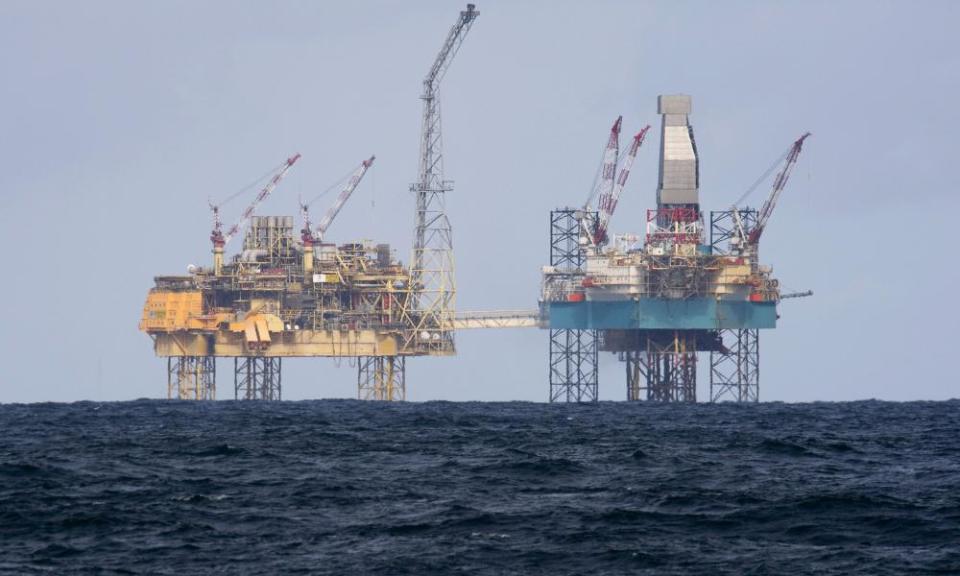Shell says windfall tax threatens North Sea oil and gas investment

Shell has said Rishi Sunak’s windfall tax is a threat to investment in North Sea oil and gas as Britain attempts to ramp up domestic energy supplies.
The chancellor yesterday announced an “energy profits levy” on oil and gas operators that he hopes will raise £5bn to help fund a support package for households.
Sunak also introduced measures to encourage investment into UK energy supplies, with tax breaks worth 91p for every £1 invested.
Related: They once worked for big oil’s enablers. Now they refuse to be complicit
However oil and gas insiders have reacted with surprise that the one-off levy will remain in place until “normal” conditions in the energy market return or until the end of December 2025.
A Shell spokesperson said: “We understand the worry for millions of people about how high energy costs are challenging their household budgets – and the need for support to help make ends meet.
“But at the same time, we must sustain investment in securing supplies of oil and gas the UK needs today, while allocating future spend for the low-carbon energies we want to build for the future.
“However, in its current form the levy creates uncertainty about the investment climate for North Sea oil and gas for the coming years.
“And, longer term, the proposed tax reliefs for investment don’t extend to the renewable energy system we want to drive forward in the UK and invest in very substantially. When making plans for the next decade and beyond, we need certainty.”
Shell plans to make £20bn to £25bn of investments in the UK over the next decade, predominantly in renewable energy projects.
In the immediate aftermath of Sunak’s statement on Thursday Shell had said “the chancellor’s proposed tax relief on investments in Britain’s energy future is a critical principle in the new levy”. However, rival BP took a harder line. It said it would review its North Sea investment plans as the levy was not a one-off tax but a “multi-year proposal”.
Debate over whether to tax a share of the super-profits generated by high oil and gas prices had caused a split in government, with Sunak pushing to raise the money but Boris Johnson arguing it could stymie investments.
Sunak will use the funds to help pay for cuts to household bills. Johnson is trying to encourage investment to build up domestic energy supplies after Russia’s invasion of Ukraine.
Shell’s shares fell 2% on Friday with BP down 1.8% and Harbour Energy, the North Sea’s biggest operator, off nearly 9%.

 Yahoo Finance
Yahoo Finance 